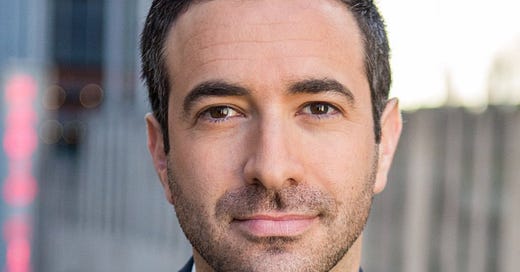An essential text on politics and life!...
When the allotted space "ain't enough"... I'll explain...
Hello, Ari here, writing you amidst an absolutely packed news week, including the first sedition charges in the insurrection probe. (You can see my MSNBC coverage of that here.)
Today, though, let’s dip into a fascinating text about life, growth and politics, of sorts, in my new essay for you below…
Upending the Rules
We all face parameters. You can bring…
Keep reading with a 7-day free trial
Subscribe to Ari Melber to keep reading this post and get 7 days of free access to the full post archives.



